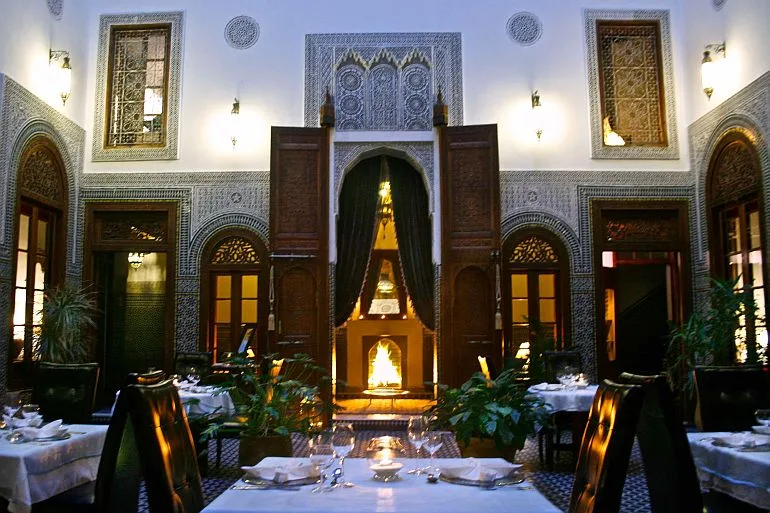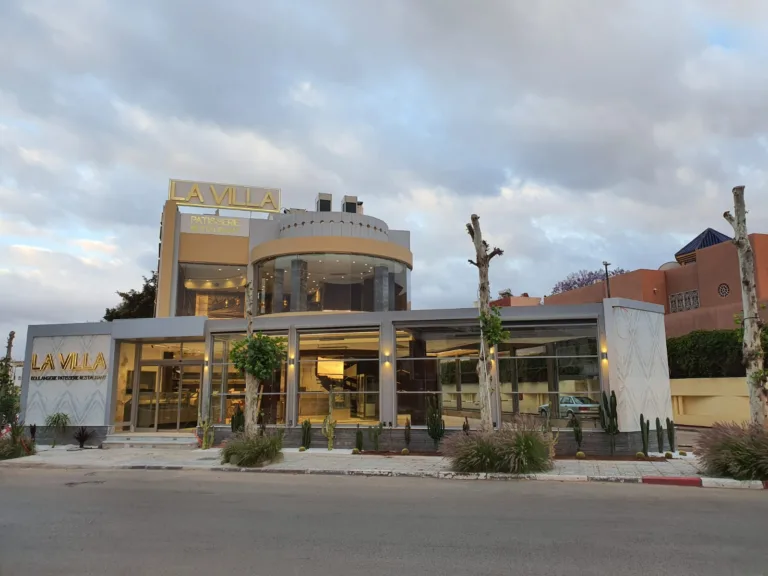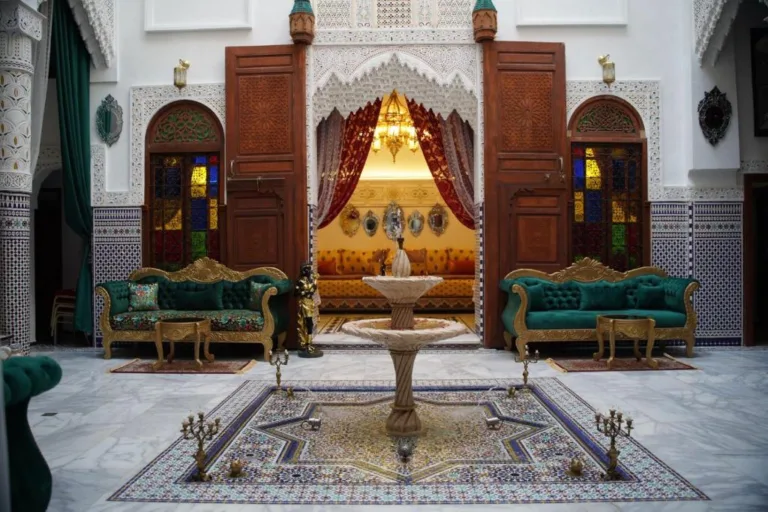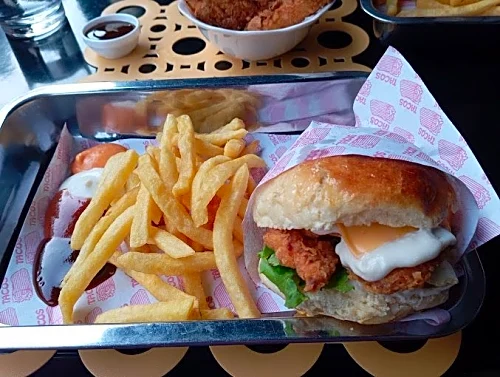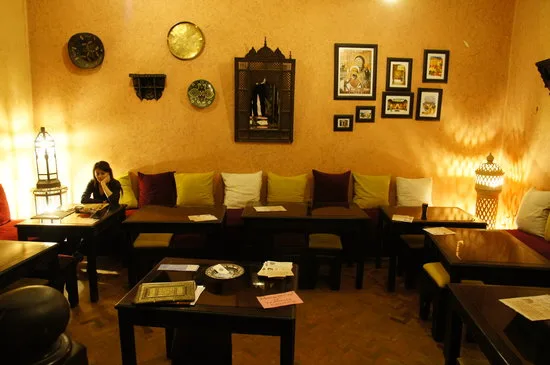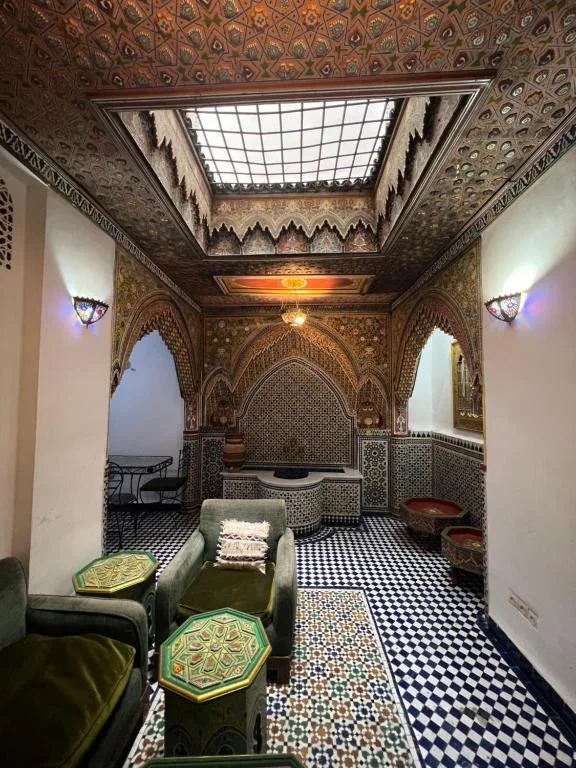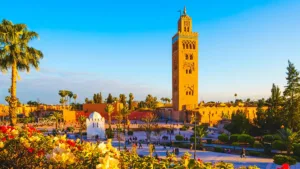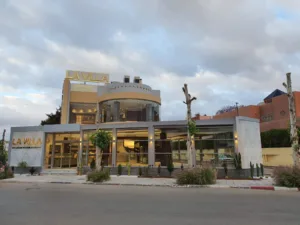Fez – Tucked inside Zkak Roumane at 30 Derb el Amer, Dar Roumana sits by the old city walls with easy access to the upper medina.
From the roof, you look out over minarets and a sea of tilework, while downstairs the courtyard and salons give shade in the day and warmth at night. The house name means “pomegranate,” a nod to trees that once lined the quarter and still climb nearby walls.
There are five suites, each framed by carved cedar, plaster and zellige. Bedding is 100% cotton with feather duvets available in hypo-allergenic versions on request, and every room has a private bath and personal safe. The property keeps screens out of sight, so there are no in-room TVs or phones, although Wi-Fi runs throughout for those who need it. Air-conditioning equips the suites with the exception of the historic Roumana room.
Suite layouts vary. “Yasmina” is the showpiece: a first-floor suite with balcony light and an ornate plaster ceiling that floats above a four-poster bed. “Tamarind” wraps around two sides of the house with six tall windows, while “Argana” trades courtyard views for rare exterior windows and privacy. The newest “Jannah” adds a mezzanine bath with twin showers and floor-to-ceiling arches.
Design choices feel deliberate rather than precious. Floors and walls carry traditional patterns, furnishings keep to a soft palette, and bathrooms adopt contemporary interpretations of Fassi tile. The result is a calm, crafted base close to Bou Jeloud and Batha without the bustle at your door.
Dar Roumana’s restaurant is a Fez fixture for travelers and residents alike. Under Head Chef Younes Idrissi, the kitchen cooks with market produce and seasonal cues, describing the style as Franco-Moroccan: think roast pumpkin with tahini and chili, braised rabbit with mustard, and a dark chocolate tart with the delicate pastry that regulars recommend. The dining room opens nightly from 7 p.m. with last orders at 9:30 p.m. and a fixed-price menu at 300 MAD for two courses or 400 MAD for three, plus 10% sales tax.
Hotel guests have priority at dinner, and advance reservations are strongly advised, especially if you want to dine on arrival night. If you are staying elsewhere in the medina, the team will dispatch a porter escort from the nearest gate and walk you back after the meal, a small service that makes night navigation simple. In cooler months, the courtyard and salons are heated; in summer, the rooms open to the air.
The restaurant’s reputation goes beyond word of mouth. Over the years, Dar Roumana has drawn attention from major travel titles, while remaining intimate in scale and tone. Breakfast for house guests is a separate pleasure, with fresh breads and pastries, juices, yogurt, fruit and eggs to order served in the courtyard or on the terrace between 8 a.m. and 10 a.m.
Hospitality here is personal. The current leadership grew from within: long-serving staff stepped into management roles in 2017, a milestone that coincided with a property refresh to reflect the team’s character. The house remains the creation of “Jen,” who began the restoration in 2002 and officially opened all five rooms in 2007 after years of careful work with medina artisans.
Chef Younes trained in Rabat before joining Dar Roumana and taking the helm in 2016. The kitchen’s consistent Fassi ingredients explains why guests frequently book rooms and tables together.
Built in the late 1800s by the Arfaoui family of olive-oil merchants, the dar was once a true family compound. Its courtyard was un-tiled until 1923, when a wedding prompted the upgrade. The pomegranate reference in the dar’s name pays homage to the history of the neighborhood and its pomegranate trees that once lined and shaded the alleys.
The restoration process, documented across photo albums in the library, speaks to an era when fewer than 20 guesthouses operated in Fez. Today the medina counts well over 200, yet Dar Roumana has held onto its identity as a house first, hotel second.
Staff can line up guides for half-day or full-day medina walks, reserve hammams, set up handicraft visits, or arrange cooking lessons. For day trips, Volubilis and Meknes are straightforward, while the Middle Atlas offers forest shade and Barbary macaques. The riad also organizes transport and longer legs to the Sahara or Chefchaouen for travelers building a wider itinerary.
If you want a small, design-rich base in Fez where dinner is a highlight rather than an afterthought, Dar Roumana delivers. The building carries a century of Fassi memory. The kitchen speaks a modern, confident culinary language. Together they make a stay that feels rooted in place and easy to recommend to travelers who value craft, calm, and real hospitality.

